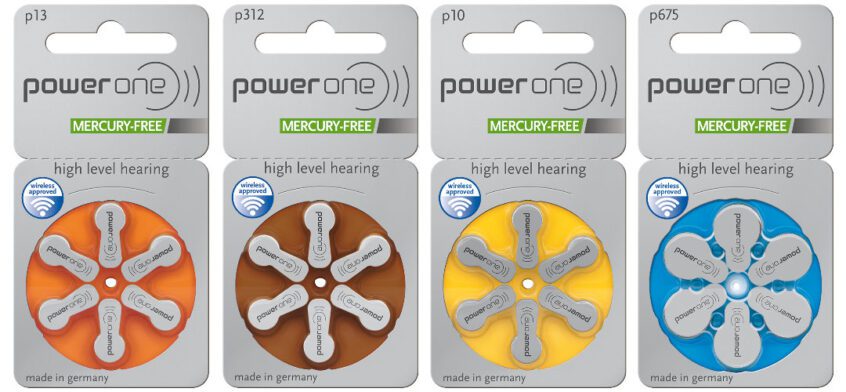Though rechargeable hearing aids have become more popular in recent years, many people still prefer hearing aids powered by small disposable button-sized batteries. Likewise, many audiologists still prefer standard disposable batteries when comparing them to new rechargeable counterparts because they remain more durable with less chance of repair or failure. In addition, long-term costs of devices with disposable batteries are less than rechargeables because the rechargeable batteries have to be replaced
over time, requiring costly manufacturer repairs.
Generally, button-sized disposable hearing aid batteries are safe, but there are some cautions to be aware of if they are used around children or pets.
That’s because even though they are mercury-free, they still contain potentially dangerous metals, such as lithium. If swallowed, these materials can be hazardous to internal organs and could cause serious injury.
In fact, according to the National Capital Poison Control Center, every year in the United States, more than 3,500 people of all ages swallow button batteries (these are button batteries used for all devices, not just hearing aids).
So, what should you do?
There’s no need to stop using batteries to power your hearing aids, but exercise caution. The National Capital Poison Control Center recommends:
- ALWAYS keep batteries out of reach of children and pets.
- Never leave batteries sitting out. Store spare batteries, and batteries to be recycled, out of sight and reach of young children. If recycling is not possible, wrap used batteries securely and discard them where a child can’t find them.
- Don’t allow children to play with hearing aid batteries.
- Alert family members who wear hearing aids to the importance of keeping the batteries out of reach of small children at all times.
- Don’t insert or change hearing aid batteries in front of small children. This only increases their curiosity about the devices.
- Don’t store batteries near pills or in pill bottles or mistake batteries for pills.
- Don’t leave them on bedside tables or place them loose in your pocket or purse.
- Carefully look at every medicine you intend to swallow.
- Turn on the lights, put on your glasses, read the label and look at the medicine itself.
- If you use a hearing aid, these steps are especially important. All too often, tiny hearing aid batteries are swallowed with or instead of medications.
- Avoid storing or leaving batteries where they might be mistaken for, or swallowed with, food.
- Don’t leave batteries in drinking glasses or adjacent to nuts, candy, popcorn or other finger foods.
- If ingested, call the National Battery Ingestion Hotline at 800-498-8666.
- Do not delay medical care. Go to the closest emergency room immediately. Button batteries can cause serious internal burns, bleeding and injuries. A number of children have either been severely injured or have died from ingestion.
- Likewise, if a pet swallows a hearing aid battery, it could be fatal. Take the pet to a veterinary clinic immediately.
- In most cases, medical care will include removing the battery.
- If you’re not sure if a child has swallowed a button battery, err on the side of caution and take them to an emergency room to be assessed.
- Damage can also occur if a child puts a battery in their nose or ear.
Remember, hearing aid batteries serve an important purpose, but ALWAYS be careful with these tiny but powerful devices. Children and pets are especially vulnerable to swallowing a battery that’s left on a counter, nightstand or that falls on the floor. But adults also have mistaken hearing aid batteries for medication and have swallowed them too.
Again, if you suspect a child, pet or an adult has swallowed a battery, seek immediate medical care.



